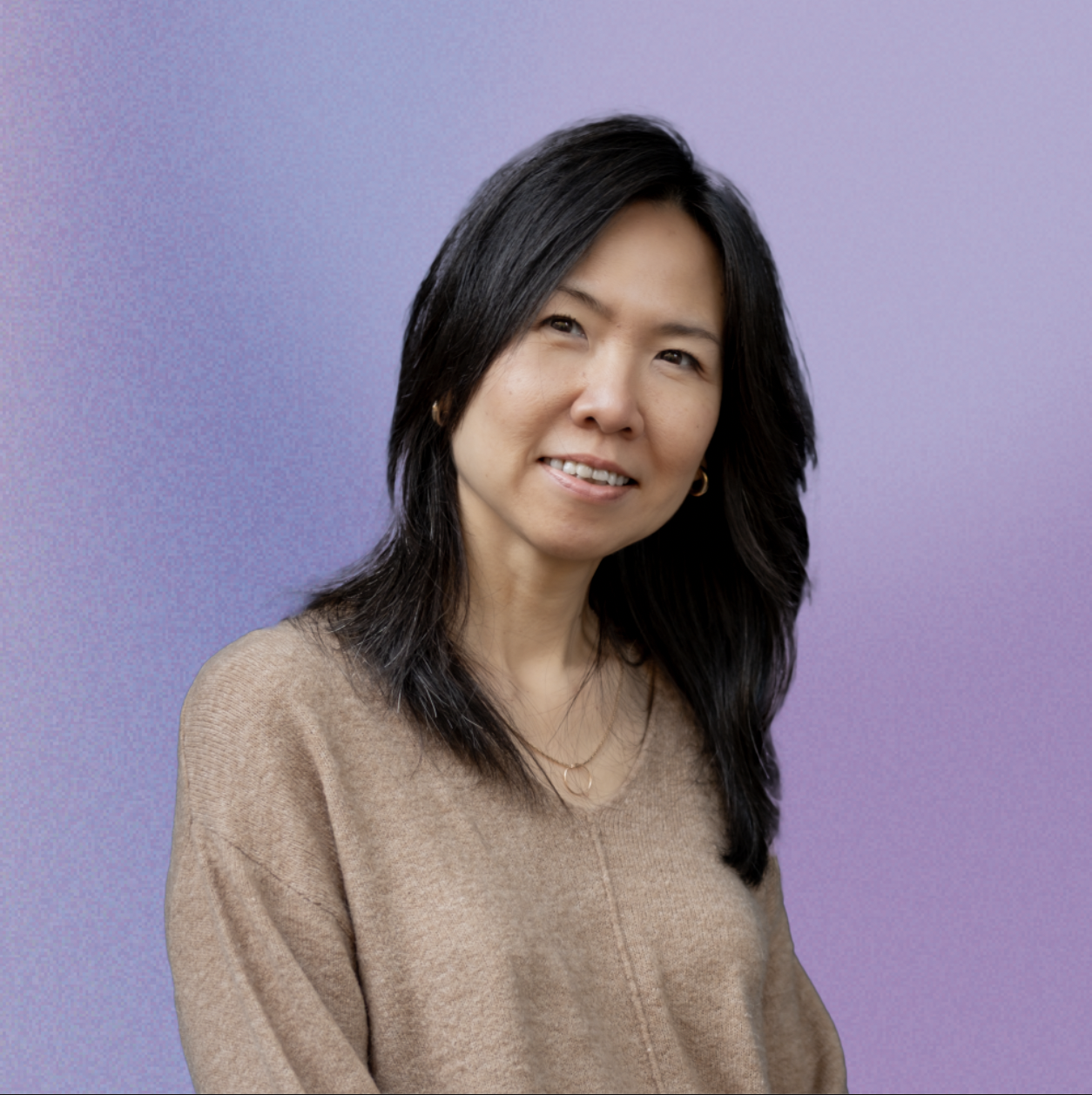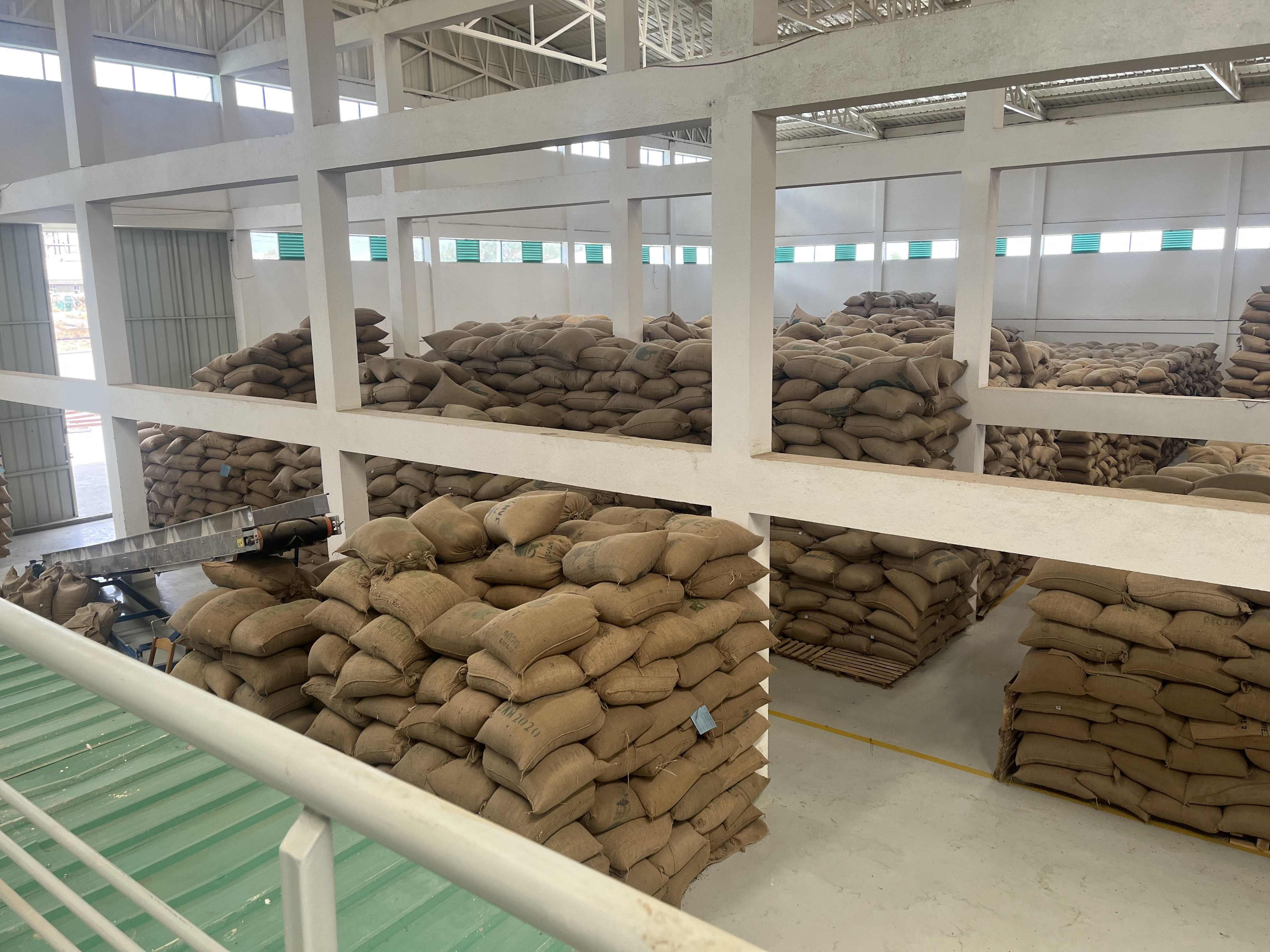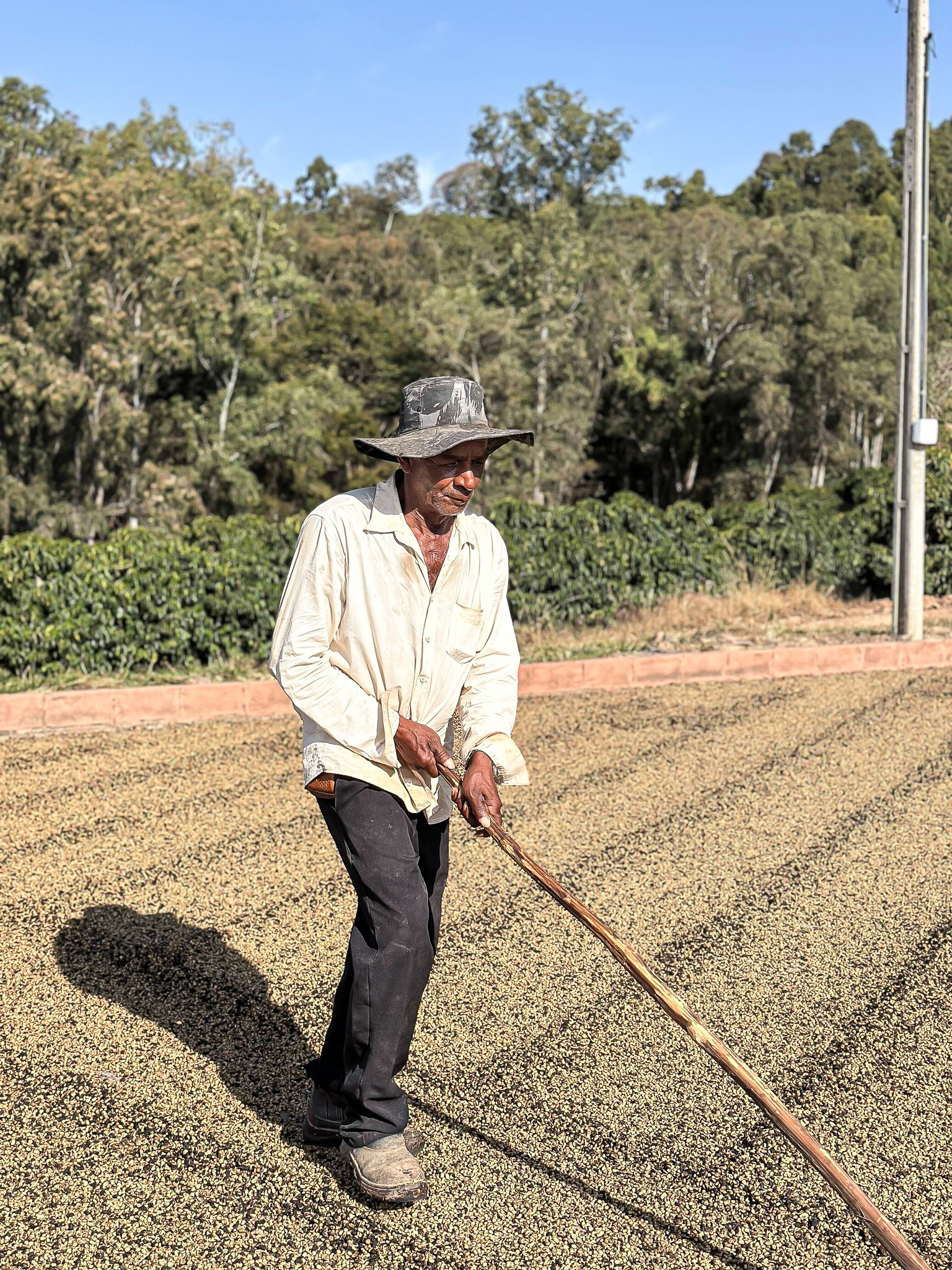Indonesia

The land of funky flavours and special preps.
Coffee in Indonesia is very unique due to its flavour profiles and diverse cultivars. Ever since we started sourcing from this origin in 2016, we have been working with one specific family in Java. We collaborate with them on producing special processing methods, such as extended fermentation and anaerobic naturals. Our goal has been to design a specific product range, while continuously testing different approaches in processing.
Harvesting season
April – September
Arrival times
October - November
Quantities
Varies from 5 – 100 bag lots
Packaging
60kg Grainpro bags
Cultivars
Mainly Sigararutang, Lini S795, & Andungsari. Also Typica, Ateng Super, P88, Borbor, & some other rare varieties
Processes
Fully washed. Sundried on patios and African beds in sun and shade, some experiments with fermentation (honey, lactic fermentation).
Flavour profiles
Sweet spices, red berries, citrus fruits, dried fruits, cocoa and marzipan.
Usage
Widely used for filters, as single origin espresso and in espresso blends.
Shelf life
Normally holds up well for a year. We can never guarantee more than 6 months after arrival for any coffees.
Our sourcing strategy in Indonesia is quite different to other origins we work in. Indonesia has an intricate value chain with many mediators doing minimal work to move the coffee along to the next player. We therefore have a direct relationship with a producer in Java and have detected a lot of potential in new cultivars and different processing methods.
Wildan and his wife Atieq started their first coffee project in the area of Sindangkerta, Weninggalih in 2010. This later became the main growing area of his farm, Java Frinsa Estate. Since their first year of production, Wildan has been focusing on quality. While the majority of the Indonesian market produces wet hulled coffees, even for specialty, Wildan has been focusing on fully washed lots. Wildan has an estate of about 130 hectares of coffee, and also processes coffees for smallholders surrounding his farm. He has more than 14 local cultivars planted and is still experimenting with new ones. He has also been focusing on proper and improved drying, as well as managing humidity levels, even under challenging weather conditions.
Wildan and the team at Frinsa experiment extensively with different bacteria and fermentation methods, such as Lactobacillus and Saccharomyces, resulting in a unique variety of funky flavours. After several years of experimentation, we have narrowed down the processing methods to a select few that consistently produce great results.
Over the years, as we have conducted these processing experiments at their station, our cupping experience has helped us select the best-performing methods. This approach has refined our special preparations from Frinsa, leading to a well-defined product lineup with distinct characteristics for each lot.

A step-by-step overview

Normal spacing for smallholders is about 2x2.5 metres, with approximately 1000-1600 plants per hectare. The average yield per plant is 2-8 kg of cherries, depending on the harvest and the farming practices.
Farmers usually prepare their own seedlings, and do their own planting, weeding and pruning. They replant 10% of the farm annually due to diseases. In some farms, pruning is a common practice and on others it is not. Chemical fertiliser is not commonly used for coffee production. Most farmers do not have a wet mill, but instead have a small, manual pulper.
With an expert background in various agricultural practices, the members of Frinsa Estate prioritise high-quality cherry selection, paying attention to varieties, the right amount of shade, picking, and sorting.
Wet hulling was introduced to the market in the late 1980s, as traders needed volumes at a faster pace. This means that smallholders pulp their coffee and ferment it in bags overnight. They then dry it from a few hours to a day, and sell it as wet parchment to local middle-men. For the parchment to crack, the middle men then dry it for one more day, aiming to reach moisture levels of about 36%. It is then considered to be ready for hulling (removing parchment) while still wet. It is either dried again before being sold to an exporter or it is sold wet. Commercial coffees are generally exported at moisture levels of around 14%.
Only a few producers in Indonesia produce clean, fully washed coffees properly dried in parchment – and Frinsa Estate is one of them. They also do some wet-hulled, naturals, and special preps. Their coffees are always separated in lots by field location, cultivar, and date of picking. The parchment is stored in plastic bags with LDPE liners.
After harvesting, the coffees are pulped and dry fermented in small tanks for 15-18 hours. They are rinsed and soaked under water for another 10-12 hours, and then washed under clean water.
For the special preps, the Frinsa team is not afraid to experiment. They have been trying different techniques with fermentation for years, producing crazy funky flavours with brown spices, syrups, cookies, and super overripe fermented fruit. They sometimes use probiotic bacterias like Lactobacillus and Saccharomyces.
Most coffees are pre-dried on beds for 1-2 days in greenhouses. Then, they are transferred to the patios. Drying can last for 14-20 days, depending on rainfall levels. The use of a greenhouse at Frinsa Estate is a game-changer for the Indonesian climate, as it can ensure uniform drying for a more consistent outcome.
Quality
We work closely with Wildan and his team, providing extensive support and resources for experimenting with various processing methods. The Frinsa team is highly quality-oriented, managing their estate with exceptional organisation and efficiency. Each member has distinct responsibilities and agricultural expertise, and they are willing to take risks to create unique preparations. Together, we have refined these special preparations, resulting in a well-defined product lineup with distinct characteristics for each lot.
Their top priorities include using high-quality cherries, focusing on cultivars, and meticulous harvesting, picking, and sorting. They continuously reinvest in their farm, as seen in their use of greenhouse structures—an uncommon practice in Indonesia. Greenhouse drying ensures uniform drying, essential in the humid climate, leading to more consistent outcomes.
Transparency
We work closely with the team at Frinsa to pre-finance the coffee we will purchase, ensuring that the team will have the capital necessary to maintain cash-flow throughout the harvest. As our selections always include funky, special preps, these coffees also have higher production costs and can be challenging to produce.
Impact
The initiatives outlined are not directly led by NA, but rather projects spearheaded by Frinsa Estate, which we can support through pre-financing our selections and finding markets for their unique flavours. Frina’s efforts bring social, economic, water conservation, and reforestation benefits to their community.
Indonesia has faced challenges like deforestation and environmental issues due to high population density and industrialization. Coffee farming is perceived as an effective solution for reforestation initiatives, and Frinsa has worked to overcome resistance from villagers to coffee farming. Wildan Mustofa, previously involved in potato breeding, shifted his focus to help local farmers find sustainable income sources, gradually gaining acceptance in the community, improving livelihoods, and reuniting families who were dispersed with the hope of finding work elsewhere. Some of Frinsa’s other initiatives include using locally-made white cotton bags to provide additional income for women off-season, as well as building a high school in the Mekarwangi village.

About the origin
Indonesia is a unique country located on the equator. It spreads across 17,500 islands with more than 300 ethnic groups and 700 living languages spoken throughout the whole archipelago.
It sits on the notorious Pacific Ring of Fire, with the largest number of highly active volcanoes in the world. Despite the natural disasters that occur every year, the volcanic terrain is a blessing for soil fertility.
Due to high population density and rapid industrialisation, Indonesia faces deforestation challenges. Massive floods and landslides are a common problem during the rainy season, where deforestation has left hilly areas vulnerable to erosion during destructive tropical rainfall.
Coffee farming is perceived as an effective solution for reforestation initiatives. The government encouraged many NGOs to initiate land-use changes from vegetable farming to coffee planting. This effort is still ongoing, as farmers do not feel comfortable implementing such changes before seeing proven results in profits.
Interested in this origin? Talk to your sales rep.




What’s new?
Updates directly to your inbox.
If you buy our coffees on SPOT terms and want to stay ahead of new lots, learn more about the origins we work with, and get early harvest updates, subscribe to our Newsletter to stay in the loop.

.jpg)











.jpg)



.jpg)
.jpg)

